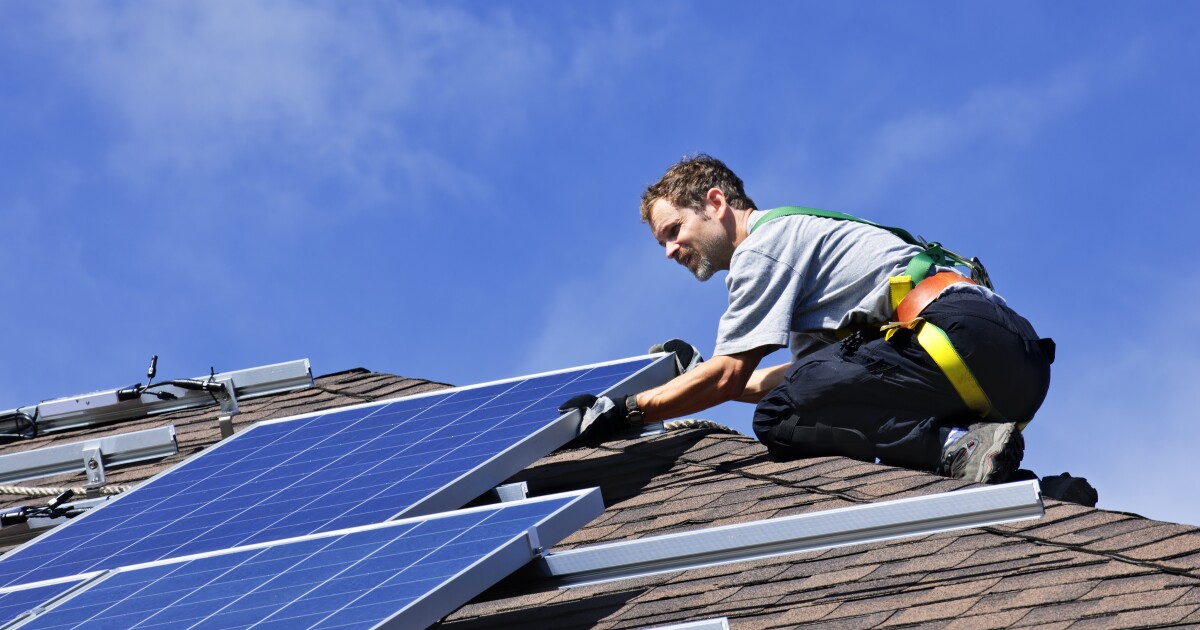[ad_1]

The Client Monetary Safety Bureau has relaunched efforts to place safeguards round clear power loans, the company introduced Monday.
Proposed rulemaking by the federal government watchdog would set up consumer protections round residential Property Assessed Clear Vitality (PACE) loans, that are used to finance residence upgrades, corresponding to putting in photo voltaic panels or updating a property to face up to pure disasters.
Particularly, the rule would alter disclosure necessities to assist customers perceive the loans' influence on their property tax funds. One such change requires collectors to contemplate a shopper's month-to-month funds to their escrow accounts as an element when making a compensation capability willpower.
The regulation would additionally prolong the civil legal responsibility provisions of the Fact in Lending Act (TILA) to most of these transactions, permitting the CFPB to carry PACE lenders chargeable for potential violations. Commentary from the general public is due by July 26.
PACE loans have confronted their fair proportion of controversy. Client advocates have expressed considerations about misleading practices related to these loans, and their overly excessive prices, which may end up in a borrower's delinquency. Some housing businesses have additionally deemed this product as too dangerous.
"When unscrupulous corporations bait householders into unaffordable loans with exaggerated guarantees of power invoice financial savings, this could result in severe monetary misery," mentioned CFPB Director Rohit Chopra in a written assertion Monday. "We're proposing new guidelines that might require smart safeguards on these clear power loans."
The compensation of PACE loans is connected to a property — not the householders — by a property tax lien, with installments usually paid over 15 to twenty years. PACE loans have a senior lien place forward of a mortgage.
This has been problematic for some housing businesses corresponding to Fannie Mae and Freddie Mac. The federal government sponsored enterprises usually do not purchase mortgage loans secured by properties with an excellent PACE mortgage. The Federal Housing Administration has flip-flopped on the topic, finally agreeing to purchase such loans.
As of December 31, 2022, 323,000 residence upgrades have been financed with PACE loans, totaling $7.7 billion. At present, 19 states and the District of Columbia have laws permitting PACE loans, although out of those states, solely three have energetic packages, together with California, Florida and Missouri, the bureau wrote in its proposed rule.
The method of setting guardrails round these loans has been underway since 2018, when Congress directed the CFPB to enact rules that cope with "the distinctive nature" of PACE financing. A 12 months later, upfront of rulemaking, the CFPB solicited suggestions from the general public.
On the time, some trade stakeholders expressed considerations that the super-priority lien related to PACE transactions creates incentives for residence enchancment contractors to originate loans on the spot, with out regard to affordability. Others made allegations of misleading or aggressive gross sales ways, and argued that these loans may end up in surprising tax fee spikes that may result in delinquency, late charges and foreclosures actions.
Since 2019, two PACE corporations have settled with regulators over their alleged conduct.
Renovate America, Inc. reached a $4 million settlement with six counties and one metropolis in California over failing to make satisfactory disclosures. Following the settlement, the corporate's license was revoked. Three years later, Ygrene Vitality Fund Inc. reached a $22 million settlement with the Federal Commerce Fee (FTC) and the State of California over allegations concerning its conduct within the PACE market.
[ad_2]

